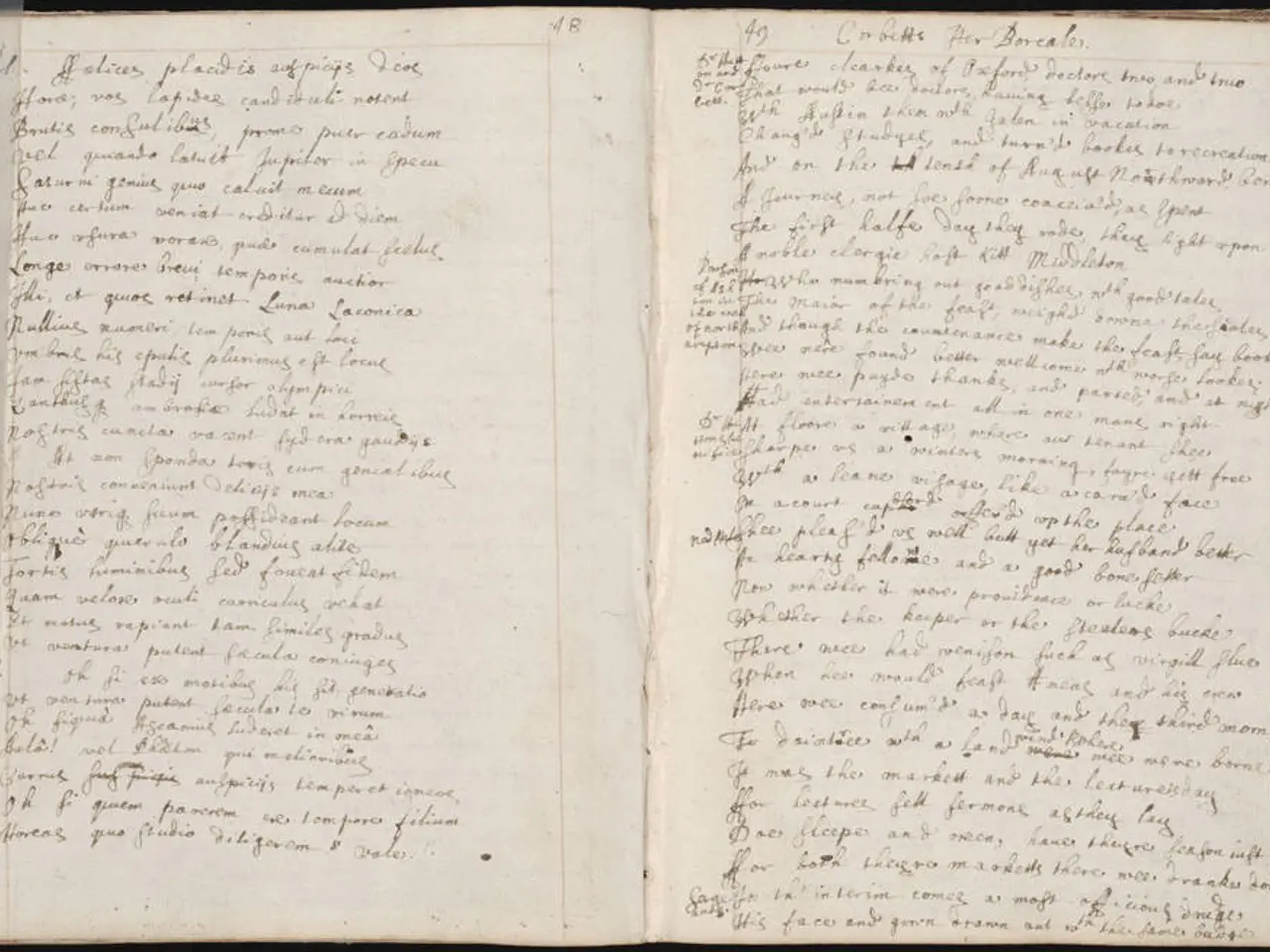Exploration of language amid guilt and speechlessness found in Alexander Saechtig's book "Beyond Moscow"
==============================================================================
In Alexander Saechtig's book, Beyond Moscow: Exploration and Analysis of Literary Guilt Discourses Across China, East Germany, Poland, and Vietnam, the author embarks on a comparative study of how guilt is thematically and discursively constructed in the literary works of these diverse countries.
Spanning 240 pages and costing 54 Euro, Beyond Moscow is part of the series "Germanistische Texte und Studien 106". The book deconstructs national narratives and presents literature as a player in the theater of memory.
The book is structured into six chapters, each focusing on text fragments, biographies, and documentary shadows. Chapters I-III delve into post-Soviet transition societies, including China, East Germany, Poland, the Baltics, and authors such as Christa and Gerhard Wolf, Uwe Kolbe, Utz Rachowski, Adam Zagajewski, Jarosław Iwaszkiewicz, Ma Yuan, and Yu Hua.
Saechtig examines how guilt is expressed in societies undergoing political and social transformation after the fall of communist governments or colonial powers. Each country’s unique historical trajectory influences how writers frame individual and collective guilt.
Through analyzing novels, poetry, and other literary forms, the book compares how guilt discourses function as a means of reckoning with past atrocities, complicity, and moral responsibility. It highlights similarities and differences between countries, contributing to a transnational understanding of guilt in literature.
In East Germany and Poland, literary guilt discourses often interrogate complicity with authoritarian regimes or the ethical ambiguities of living under surveillance states. In China and Vietnam, guilt is frequently entangled with nationalist narratives and the trauma of war and revolution.
Saechtig discusses how literary texts mediate collective memory and trauma, using guilt as a lens to explore identity formation and social reconciliation processes within these nations. The analysis draws on literary theory, postcolonial studies, and memory studies to understand how guilt functions beyond personal conscience, becoming a public and political discourse.
Chapter VI shows different forms of processing tabooed themes in the research area, including Hei Mia and Ba Jin. Chapter V expands the horizon to Asia, examining commercialization and memory politics in China and Vietnam through conversations with Zhang Jie and Pietro Quaroni.
Beyond Moscow takes literature seriously as cultural negotiation and opens up future perspectives for literary criticism and transnational thought. The book deals with guilt as a literary experience, not as a legal concept. It is a plea for poetic multivoicedness, ethical depth, and the value of critical memory culture.
Writing literature against a power that brutally persecutes any dissent is different from doing so in a free democracy. The book interweaves documentary elements, portraits, correspondences, and images, creating a literary archive of inner and societal breaks.
Beyond Moscow is published by Georg Olms Verlag, Baden-Baden, with the ISBN-13: 978-348742400-2. The book is a significant contribution to scholarship on comparative literature, history, and cultural studies, mapping guilt not just as an emotion, but a complex narrative and symbolic resource negotiated in different national contexts.
The book, Beyond Moscow, offers insight into how books serve as entertainment and players in the theater of memory, as it deconstructs national narratives and examines guilt discourses across China, East Germany, Poland, and Vietnam. In East Germany and Poland, books often explore the ethical ambiguities of living under authoritarian regimes, while in China and Vietnam, they frequently entangle with nationalist narratives and the trauma of war and revolution.




